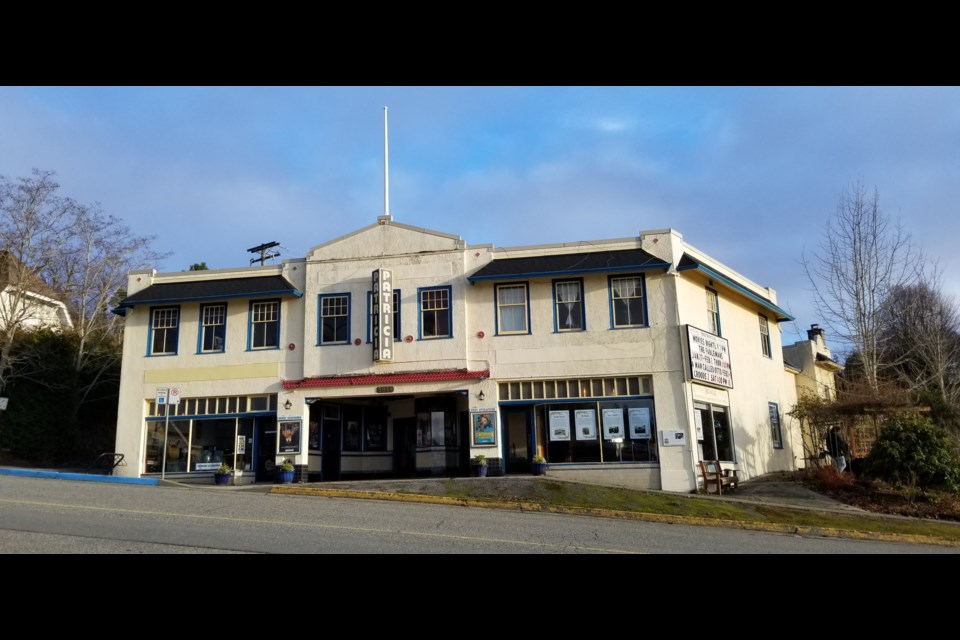The second 3 Ears Indigenous Film Festival, presented by qathet film society, takes place at the Patricia Theatre from September 27 to October 1, 2024.
The festival is in honour of Orange Shirt Day/National Day for Truth and Reconciliation, but also to recognize and celebrate the many Indigenous-focused films being made today by Indigenous filmmakers.
Opening night starts off with the documentary titled Wilfred Buck, directed by award-winning filmmaker Lisa Jackson. It was a winner among the top five audience favourites at Hot Docs Canadian International Documentary Festival 2024.
Preceding Wilfred Buck is local film, Welcome to Here, which is based on a first-word book honouring the lands and waters of Tla’amin Nation and the Ayajuthum language. The three-minute short was directed by Tla'amin member and weaver Sosan Blaney, artist Megan Dulcie Dill and filmmaker Claudia Medina. Medina will be in attendance for a question period after the film.
"We have a programming committee that brings forward suggestions for films and discusses what should be screened," said qathet film society education director Peg Campbell. "We're in a really fortunate position these days, that there are so many extraordinary Indigenous films being made, so there were a lot of choices."
Campbell said the society picked a mix of genres, including the Indigenous crime/comedy caper The Great Salish Heist, filmed on Vancouver Island and being screened on September 30. They are screening the film in the evening, post the Orange Shirt Day/National Day for Truth and Reconciliation walk and gathering, as a way to lighten spirits after a serious time of reflection and remembrance of those who were lost and/or survived residential schools.
"Clancy Dennehy will be here that same evening, with his short film Rez Carz," said Campbell.
According to the film synopsis: "Rez Carz is voiced by top native actors including Tantoo Cardinal, Gary Farmer, Evan Adams and Ta’Kaiya Blaney; crucial moments of past lives breathe again inside abandoned cars resting in reservation country."
"What is really pertinent this year, and important, is that when I attended or listened to [City of Powell River] council meetings, I heard a lot of residential school denialism," said Campbell. "It is so disheartening that in this day and age, with all the work that was done by the Truth and Reconciliation Commission, with all the courage of the Indigenous people who have come forward to tell about their lived experiences in residential schools, that there could be people who are denying that reality."
Campbell said she hopes films like the documentary Sugarcane will give the community a chance to hear more stories and lived experience about the reality of the impact and the intergenerational trauma that has been happening because of residential school experiences. Sugarcane, which screens on Tuesday, October 1, delves into the evidence of unmarked graves discovered on the grounds of an Indian residential school run by the Catholic Church in Canada.
The Path To Reclamation will screen before Sugarcane and is set to be a festival highlight. Produced by Kaitlyn Ngo, Abby Francis, Richard Davis and Sebastian Arancibia, the 15-minute film spotlights Tla’amin Nation and the decades searching for its missing mortuary poles. A chance sighting results in the two poles being recognized and reclaimed.
"Abby's not able to be here, but she is going to be Zooming in and joining us at a preview-talk about the festival on Tuesday, September 24, at Powell River Public Library, at 4 pm," said Campbell.
The preview talk is open to the public.
Entry for the second annual 3 Ears Indigenous Film Festival is by donation. According to qathet film society’s website: "The films programmed for the festival support the film society’s mandates to prioritize anti-racism, inclusivity and equity in our programming and organization; and to engage with Tla’amin Nation in the ongoing process of decolonization and reconciliation. The films provide an opportunity for the settler community to learn about the multigenerational harm of colonialism. For our Indigenous audience, the stories told celebrate the strength and rich culture of their people."
To find out more information about the films and festival, go to qathetfilm.ca/3-ears-indigenous-film-festival.
Join the Peak’s email list for the top headlines right in your inbox Monday to Friday.



